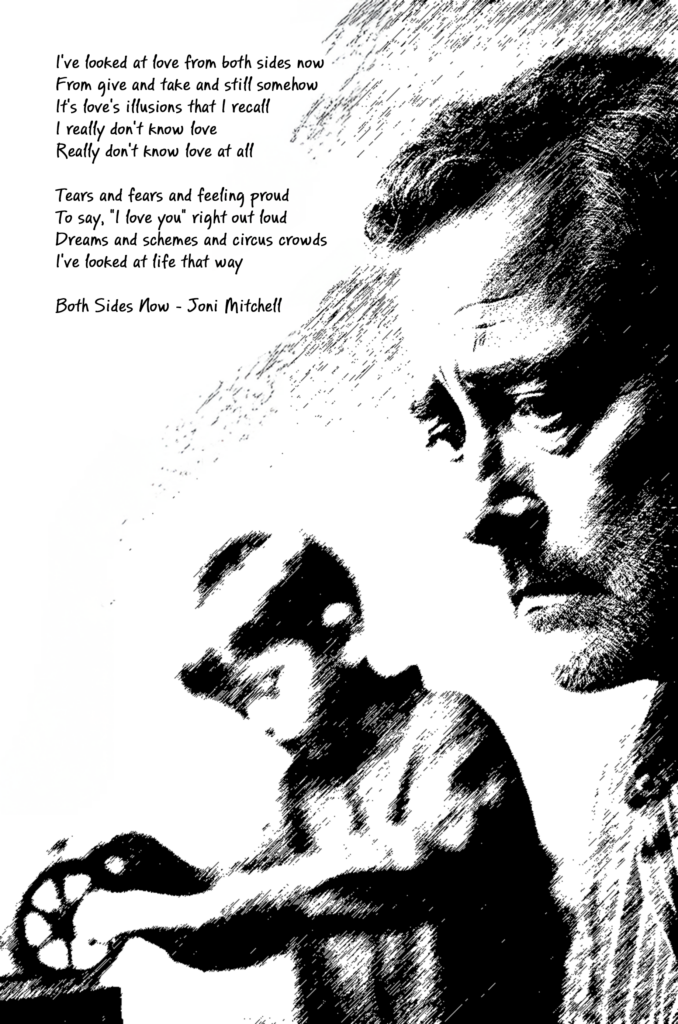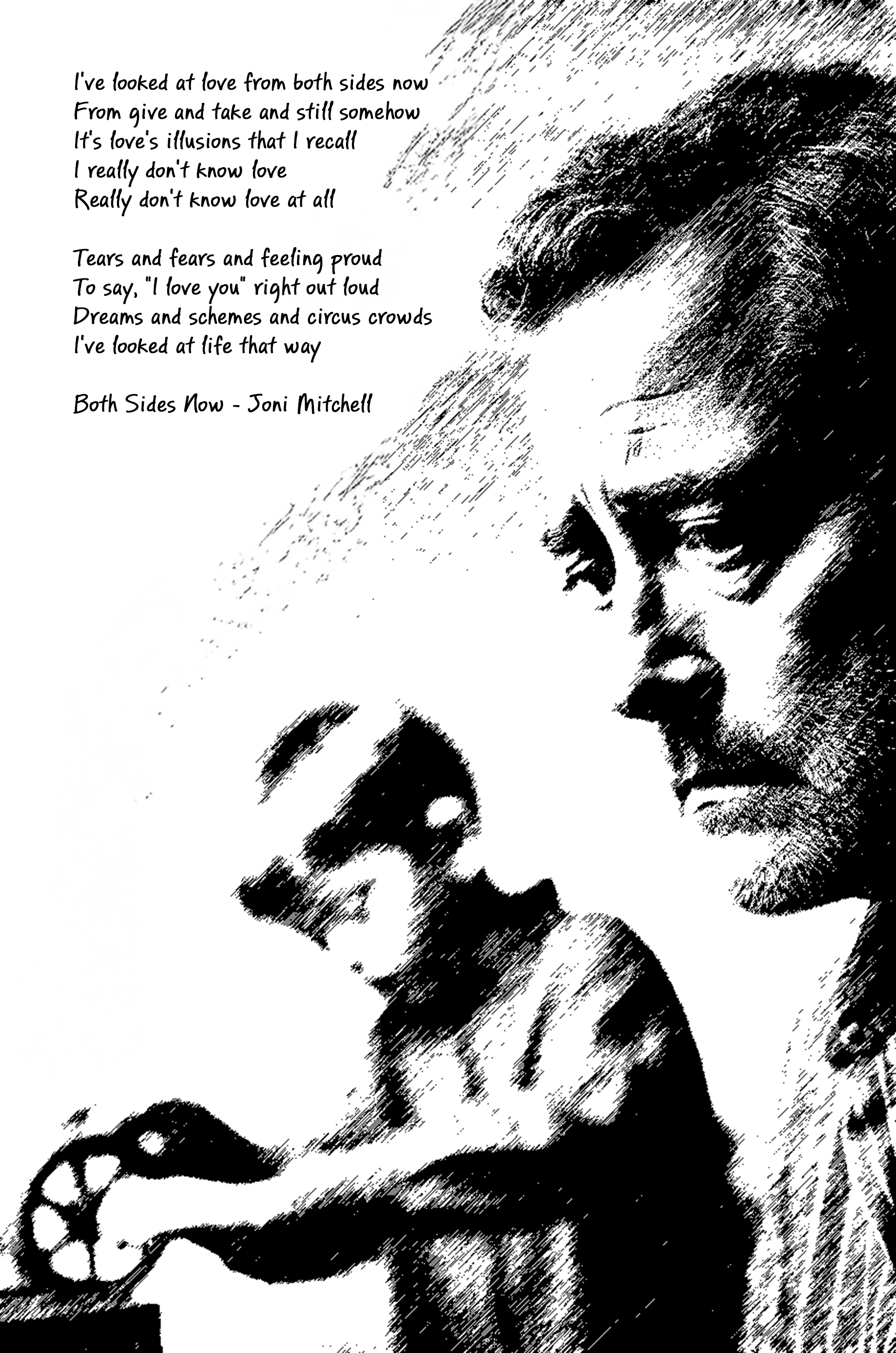
Sadness Is the Great Liberator
The day I finally sat down and wept for my son—for the life I thought he would have, for the dreams I had carried—was the day my healing truly began. It wasn’t pretty. There were no inspirational music swells in the background, no moment of transcendent understanding. Just me, alone, sobbing until my chest ached and my eyes burned. And yet, somehow, I felt lighter afterward. Not happier—not by a long shot—but as if something stuck inside me had finally begun to move.
Sadness is a necessary and healthy emotion leading to acceptance. Where anger pushes away what we can’t bear to face, sadness pulls us toward what we need to embrace. This is why sadness, however painful, is ultimately the gateway to acceptance. You simply cannot accept what you’re still resisting or pushing away.

Sadness Cleanses the Heart
Think of it this way: anger builds walls, but sadness opens doors. When I was angry about my son’s diagnosis, I was fighting against reality itself. When I allowed myself to feel sad, I was finally acknowledging that reality—taking the first step toward living within it rather than exhausting myself by fighting against it.
You might think that avoiding sadness will lead you more quickly to happiness. I certainly did. But I learned the hard way that you will not find lasting happiness until you’ve digested and processed the sadness that comes with having a child whose life will be different than you imagined. Embracing sadness is a difficult but essential part of your spiritual journey as a parent of a special needs child.
Grief is the processing of sadness. There’s no shortcut around sadness to get to acceptance. Sadness must be endured to reach acceptance because acceptance is the opposite of resistance. When I finally accepted my son’s autism, it wasn’t because I’d found some magic trick to bypass grief—it was because I’d allowed myself to fully experience it.
I like to think of processing grief as a kind of emotional digestion. Sadness is a bitter drink that must be fully digested before your system can be nourished by acceptance. Just as our bodies need time to break down food, our hearts need time to break down grief.
Grief is processed by feeling sadness without resistance. The more you resist, the slower the processing goes. I spent months trying to “stay positive” and “be strong,” but all I was doing was putting off the inevitable and slowing my own healing. When I finally surrendered to my sadness—when I gave myself permission to feel devastated—the process actually moved faster.
Avoidance Leads Nowhere
Don’t avoid the sadness that leads to acceptance. This is such a common mistake, and unfortunately, it leads to negative outcomes that can last for years. When we sidestep our sadness, we often fail to obtain the appropriate assistance for our children because we’re still in denial about what they truly need. We might abdicate responsibility to others—teachers, therapists, family members—without being fully engaged ourselves.
Most harmful of all, avoiding sadness perpetuates a state of unhappiness because ignoring or suppressing sadness doesn’t eliminate it—it drives it underground where it continues to affect everything you do and every decision you make.
I remember a father I met at a support group who prided himself on “never shedding a tear” over his daughter’s diagnosis. Five years later, he was still jumping from therapy to therapy, still convinced the next treatment would “fix” her, still unable to connect with her as she was rather than as he wished she could be. His avoidance of sadness had kept him stuck in a cycle of denial and bargaining that prevented him from truly accepting and loving his daughter.
Sadness is not depression, but it can become depression. There is a problem with digesting too much sadness at once. Prolonged, unrelenting feelings of sadness can morph into depression, which is a very different beast. Sadness moves and changes; depression traps and paralyzes.
Sadness must be endured in reasonable doses. Too much leads to depression; too little prolongs recovery. And avoiding sadness altogether prevents reaching the final destination of acceptance.
This is where denial and bargaining can actually serve a purpose. They can provide respite from sadness when it becomes overwhelming. Moving between surrender to sadness and periods of denial and bargaining is essential to avoid depression. Denial isn’t inherently bad when taken as respite. Bargaining isn’t bad when it facilitates right action. Even anger, which I’ve cautioned against, can be transformed into determination to take positive steps for your child.
The danger comes when depression takes hold, because depression shuts down the processing entirely and promotes “stuckness”—that terrible state where nothing changes, nothing improves, and hope seems impossible.
Grief and Sadness
Nobody knows how much sadness they have to digest. Nobody knows how long it takes. When it’s over, your mind just stops thinking about it, and it’s over. My experience was that some days, I would feel ready to move through my sadness. Other days, I would wake up and feel as if I couldn’t take it.
Grief isn’t linear. It doesn’t follow a timetable or respond to demands. It takes as long as it takes. But I promise you this: if you allow yourself to feel the sadness of having a child whose life will be different than you imagined, if you surrender to that grief without judgment or resistance, there will come a day when you simply stop hurting. And on that day, you’ll be ready to accept of your child exactly as they are.
The sadness won’t disappear entirely—it will revisit you at milestones, at school events where differences become more apparent, at birthday parties where your child stands apart. But these waves of sadness will no longer sweep you away. They’ll come, and then they’ll go, leaving behind not devastation but a deeper capacity for joy in the life you actually have, rather than the one you once imagined.
Sadness, when fully experienced, truly is the great liberator. It frees us from the exhausting work of denial, from the corrosive power of anger, from the endless hamster wheel of bargaining. It delivers us, finally, to acceptance—not as a consolation prize, but as the solid ground upon which we can build a meaningful life with our special children.


